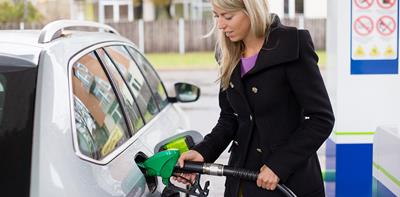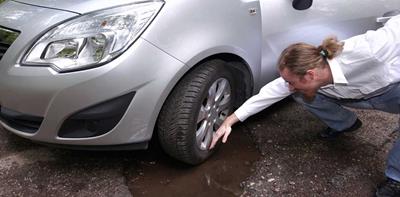
Getting distracted when behind the wheel can have incredibly serious consequences. According to the latest figures from the Department for Transport, some form of distraction played a role in one of every 12 (8.5%) fatal crashes in 2017.
So, which are the most common distractions to avoid?
Driving with kids in the car
Any parent will tell you that driving with children in the back is a vastly different experience to a trip with only adults in the car, and that’s not just because you end up listening to nursery rhyme CDs for hours on end.
It’s very easy for children to get upset, whether that's because they are uncomfortable, bored or arguing with each other, and trying to resolve those issues while driving can easily lead to accidents.
Preparation can make a big difference here. Try making sure the kids have something to occupy them during the journey, whether that’s a comic, food or something to listen to. It’s also a good idea to plan a stop or two, particularly for long journeys, so they can get out and stretch their legs before becoming overly irritable.
Backseat drivers
According to a survey by IAM RoadSmart a few years ago, more than a quarter of motorists admitted having been distracted by backseat drivers in the past.
While their interventions may be well intentioned, having constant ‘advice’ from your passengers can affect your concentration. Some studies have suggested that anxiety may be a factor here, so think carefully about how your driving may be making them anxious. Speaking to them beforehand about the fact that you find it distracting may help too, as will finding other ways to distract them from the journey, such as letting them select the radio station.
Using your mobile
As many as one in four drivers have admitted to using their mobile while driving, according to IAM RoadSmart’s study. It should go without saying just how dangerous this is. Data from the Department for Transport found that there were 33 road deaths where a driver being distracted by their mobile was a factor in 2017, and a further 90 people were seriously injured.
Last year the government doubled the punishment for being caught using a mobile phone while driving. Those caught doing so now face a £200 fine and six points on their licence.
Dr Suzy Charman, executive director of the Road Safety Foundation, said: “Research shows you are twice as likely to have a crash text driving when compared to drink driving.
“Driving is one of the riskiest things that we do, and combining this with all the amazing functionality of modern smartphones is a recipe for disaster. Put the phone in the glove box, or use Apple’s ‘Do not disturb while driving’ which is an excellent solution to the distractions of the phone and sends a clear message to callers that you do not take calls while on the move."
Trying to follow the satnav
Satellite navigation (satnav) systems are supposed to make life easier for drivers. They mean you no longer have to memorise routes, and they even update the recommended route based on live traffic information.
However, the satnav can prove a significant distraction for motorists, particularly if they are trying to enter the details for the destination on the move. It’s much easier - and safer - to get it all set up before you set off. If you familiarise yourself with the route, and likely diversions, beforehand, the satnav’s instructions should prove even less distracting.
Overloading your car
Loading up your car to the point where you can’t see out of your mirrors, or can’t properly drive, isn’t just distracting: it’s dangerous.
There were recent news reports about a man who completely loaded his car full of branches, to take to the tip. So stuffed full was his vehicle that he couldn’t see his mirrors or access the gear lever.
The police stopped him and made him empty the car, so he had had to make several trips to the tip.
Changing the radio station
A study earlier this year by The Car People revealed that around a quarter of drivers have been distracted from the road ahead by fiddling about with the car radio. Whether it’s switching stations or changing the CD, getting the right musical accompaniment to your drive can cause you to lose concentration and ultimately lead to accidents.
Wearing headphones
According to the Royal Society for the Prevention of Accidents, not enough focus is being paid to how distracted drivers can become when wearing headphones behind the wheel.
Not only can this mean they aren’t paying enough attention to the conditions around them, they can result in much slower reactions to external events, which can be particularly serious when travelling at speed.
Eating and drinking
A study from Exchange and Mart found that more than a third of drivers have either eaten or drunk something while driving. Sure, it may save some time to polish off that sandwich while you’re on the move, but it can cause you to take your eyes off the road and slow your reactions.
There is also the issue of food and drink accidentally spilling onto your clothes, taking your attention off the road and onto sartorial issues.
Fixing your make-up
Along similar lines, around 5% of drivers say that they have applied some form of cosmetics while driving. Doing this is simply asking for trouble though - being a little bit more prepared, and finishing getting ready before starting your journey, will ensure you don’t drive with such distractions.


